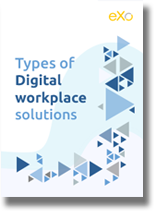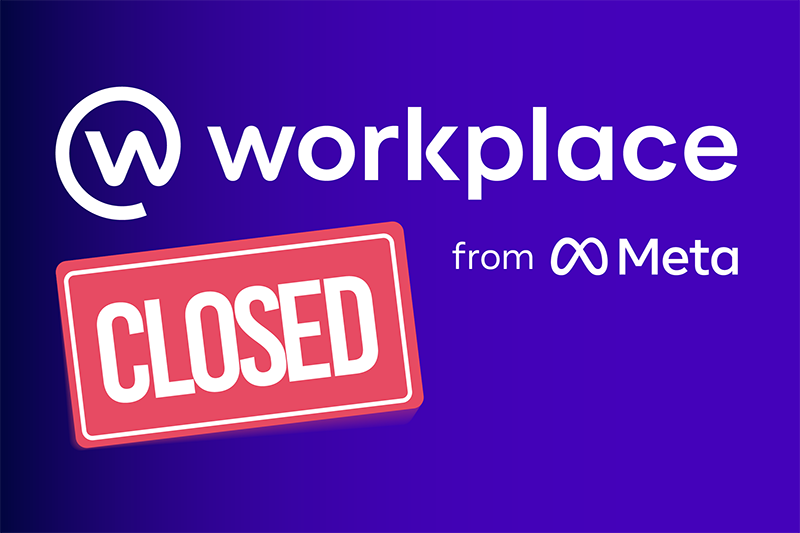- Brahim Jaouane
- April 18, 2019
Benefits of Enterprise Search Engine as a key to improve productivity
A disconnected/disengaged workforce, broken business processes and an overall decrease in efficiency represent the most recurrent challenges facing organizations today. As a result, digital workplace solutions have grown in popularity as they offer an holistic solution capable of integrating different tools and applications.
A typical digital workplace includes a knowledge management system (KMS), an enterprise social network (ESN), an intranet portal, instant messaging and more. It also integrates different third party software used internally, from CRM to Human Resources Information Systems (HRIS).

Content
For better usage and efficiency, a digital workplace needs to collect data from all these data sources and make it widely accessible to users in a centralized place – thus the importance of the enterprise search engine.
In this blog post, we will dive more into what constitutes a good enterprise search engine, its benefits and the advances made in this field.
1. Enterprise search: definition
Enterprise search is the process of making content from different data points available and accessible to users across the whole organization. Although a straightforward concept, implementing an effective search engine is not an easy task. Organizations have to properly plan and prepare their different sets of data to assist the search engine in extracting accurate results.
The popularity and widespread use of consumer search engines like Google put extra pressure on organizations to deliver a search engine capable of meeting the high expectations of their users. With this in mind (and with budgets barely comparable to consumer search engines), businesses try to come up with the best solution to make life easier for their employees. Which brings us to this question. What makes a good enterprise search engine?

FREE WHITE PAPER
Types of Digital workplace solutions
The modern workplace has evolved significantly in recent years, with advancements in technology, the growing number of tools …
2. What are the criteria of a good enterprise search engine?
Connectors:
Analytics:
Artificial intelligence:
Security:
Scalable:
3. Advantages of an enterprise search engine
Employees spend less time looking for information:
Different studies show that the time spent by employees searching for insights is among the most recurrent challenges facing organizations today. The multitude of tools and business applications used daily make access to information a challenging task for employees. According to the International Data Corporation, the knowledge worker spends 2.5 hours per day, or roughly 30% of the work day, searching for information.
An enterprise search engine with the criteria mentioned above can significantly reduce the time spent by employees switching between different tools and apps to find what they need. Powerful connectors coupled with AI capabilities allow for easy access to information.
Improve employee onboarding
Access a rich knowledge base
Quick and easy access to large sets of data help users (especially decision makers) make use of the data stored within their databases. Whether to make predictions based on historical data or to access old documents, search engines with advanced capabilities can be a great tool to improve problem solving, learning and decision making.
Enterprise search engines are crucial for organizations as they help businesses improve productivity by providing access to large sets of data in a quick and timely manner.
Search engine technology has come a long way over the years. The technology grew with the internet thanks to constant innovation from tech giants like Google to become an important part of everyday life. Whether from the comfort of their homes or at their desks, users are constantly searching and scrawling through search results.
Tech companies are investing heavily in new search technologies and new concepts have been developed over the years from artificial intelligence to voice-driven search. The possibilities are endless and we can expect great advances in this field in the years to come.
company intranet

Related posts
- All
- eXo
- Digital workplace
- Employee engagement
- Open source
- Future of work
- Internal communication
- Collaboration
- News
- intranet
- workplace
- Knowledge management
- Employee experience
- Employee productivity
- onboarding
- Employee recognition
- Change management
- Cartoon
- Digital transformation
- Infographic
- Remote work
- Industry trends
- Product News
- Thought leadership
- Tips & Tricks
- Tutorial
- Uncategorized



Nice and informative blog! Enterprise search tools today, like 3RDi Search and Commvault, have indeed come a long way and the process of search has become a lot faster and accurate, which in turn contributes to greater productivity.
Enterprise search has indeed come a long way and the future holds tremendous potential.
Couldn’t agree more. Enterprise search analytics tools like 3RDi Search, Algolia or Coveo, are what enterprises today need in order to make sense of the large volumes of unstructured enterprise data that are collected from various sources. This data has huge potential as the insights can drive informed decision making for the business.